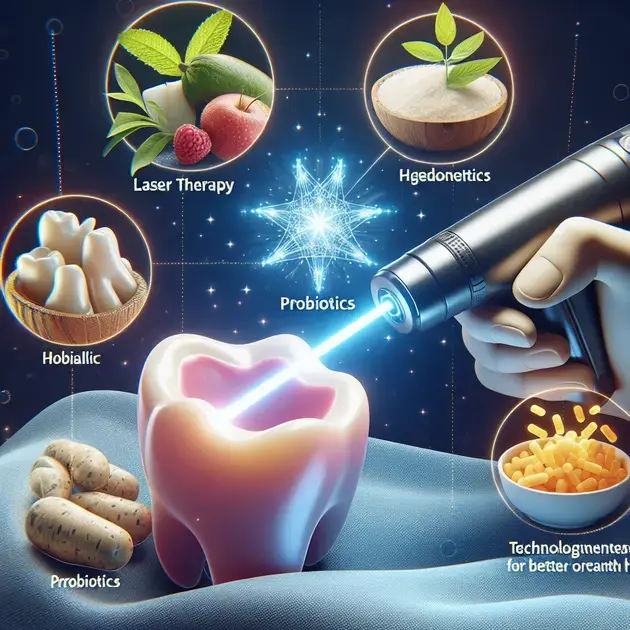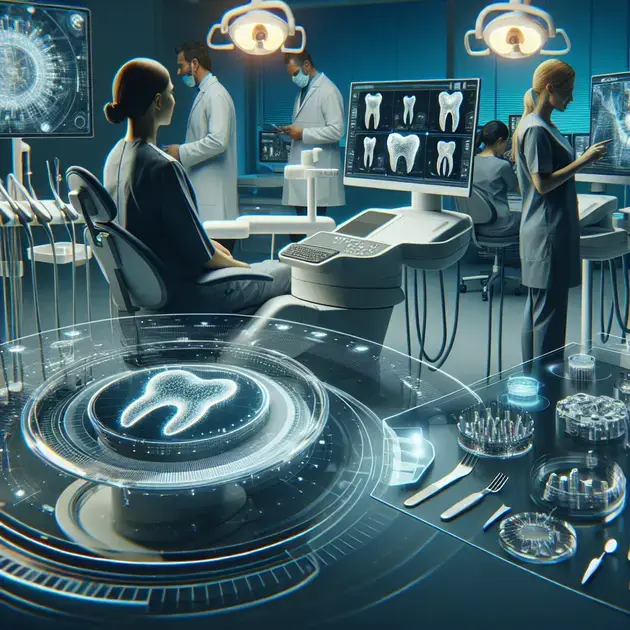When it comes to managing periodontitis, understanding the role of medication is crucial. With various treatment options available, including medications, it’s essential to have a clear understanding of how they work and their effectiveness.
Advancements in periodontal medicine have led to the development of targeted medications that can help manage and treat periodontitis more effectively. By exploring different medication options, patients can work with their healthcare providers to create a personalized treatment plan that addresses their specific needs and improves their oral health.

Understanding Different Medication Options for Periodontitis
When it comes to treating periodontitis, there are various medication options available that can help manage the condition effectively. Understanding the different types of medications can help individuals make informed decisions about their treatment plan. One popular medication option is the use of antibiotics, such as doxycycline or minocycline, which can help reduce bacteria and inflammation in the gums.
Another common medication option for periodontitis is antimicrobial mouth rinses, like chlorhexidine. These rinses can help control the growth of bacteria in the mouth, reducing plaque and preventing the progression of gum disease. It is important to follow the instructions provided by your dentist or healthcare provider when using these mouth rinses for optimal results.
In some cases, your dentist may recommend the use of enzyme suppressants, such as statins, to help reduce inflammation and promote healing in the gums. These medications work by targeting specific enzymes that play a role in the progression of periodontitis. It is essential to consult with your healthcare provider to determine the most suitable medication option for your individual needs.
For those who prefer non-invasive treatment options, laser therapy can also be considered as a medication alternative for periodontitis. Laser therapy helps to reduce bacteria and inflammation in the gums, promoting tissue regeneration and overall gum health. Your dentist can provide more information about the benefits of laser therapy and whether it is a suitable option for your condition.
Overall, understanding the different medication options for periodontitis is crucial in developing a personalized treatment plan that addresses your specific needs and promotes optimal oral health. By working closely with your healthcare provider, you can explore the various medication options available and choose the most effective approach for managing your periodontal condition.
Exploring the Effectiveness of Targeted Medications
Targeted medications have become increasingly popular in the treatment of periodontitis due to their effectiveness in addressing the underlying causes of gum disease. These medications are designed to target specific bacteria or enzymes that contribute to the development and progression of periodontitis, resulting in more targeted and efficient treatment outcomes.
One example of a targeted medication is sub-antimicrobial dose doxycycline (SDD), which works by inhibiting the activity of enzymes that break down collagen in the gums. By preserving collagen, SDD helps to reduce inflammation and promote tissue repair, leading to improved gum health. Your dentist can provide guidance on the use of SDD and its effectiveness in managing periodontitis.
Another targeted medication option is locally administered antimicrobials, such as Arestin. These medications are placed directly into the gum pockets during scaling and root planing procedures to target and eliminate bacteria in specific areas of the mouth. By delivering the medication directly to the site of infection, locally administered antimicrobials can effectively reduce bacterial load and promote healing.
In addition to targeted antibiotics and antimicrobials, host modulation therapy is another approach that focuses on regulating the body’s immune response to gum disease. Medications like low-dose aspirin or omega-3 fatty acids can help modulate the inflammatory response in the gums, reducing tissue damage and promoting healing. Your healthcare provider can provide information on the benefits and effectiveness of host modulation therapy in managing periodontitis.
Overall, exploring the effectiveness of targeted medications in the treatment of periodontitis can provide valuable insights into innovative approaches for managing gum disease. By discussing these targeted medication options with your healthcare provider, you can tailor a personalized treatment plan that addresses the specific factors contributing to your periodontal condition.
Personalizing Treatment Plans with Healthcare Providers
Collaborating with healthcare providers to personalize treatment plans for periodontitis is essential in addressing the unique needs and goals of each individual. By working closely with your dentist or periodontist, you can develop a comprehensive treatment plan that incorporates the most effective medication options and therapies to manage your gum disease effectively.
The first step in personalizing your treatment plan is to undergo a thorough assessment of your oral health, including a comprehensive examination of your gums, teeth, and supporting structures. Your healthcare provider will evaluate the extent of gum disease and recommend appropriate interventions, such as scaling and root planing or surgical procedures, to address the underlying issues contributing to periodontitis.
During the treatment planning process, communication with your healthcare provider is key to ensuring that your concerns and preferences are taken into consideration. By sharing information about your medical history, lifestyle habits, and treatment goals, you can collaborate with your provider to customize a treatment plan that aligns with your individual needs and priorities.
Regular follow-up appointments with your healthcare provider are essential to monitor the progress of your treatment plan and make adjustments as needed. Your dentist may recommend changes to your medication regimen, lifestyle modifications, or additional therapies to optimize the outcomes of your periodontal treatment. By actively engaging in the treatment process and following the guidance of your healthcare provider, you can achieve long-term oral health benefits.
Personalizing treatment plans with healthcare providers also involves adopting a proactive approach to preventive care and maintenance. Your provider can offer guidance on effective oral hygiene practices, dietary recommendations, and lifestyle modifications to support gum health and minimize the risk of disease recurrence. By partnering with your healthcare team, you can work towards a healthier smile and enhanced quality of life.

Exploring Alternative Medication Approaches for Periodontitis
When it comes to treating periodontitis, exploring alternative medication approaches can provide patients with additional options for managing their condition. One such approach is the use of herbal remedies, which have been used for centuries in traditional medicine. Herbs like chamomile, aloe vera, and tea tree oil have anti-inflammatory and antimicrobial properties that can help reduce inflammation and fight off bacteria in the gums.
Another alternative medication approach for periodontitis is the use of probiotics. Probiotics are beneficial bacteria that can help restore the natural balance of the oral microbiome, reducing inflammation and promoting gum health. Studies have shown that probiotics can be effective in reducing gum bleeding and periodontal pocket depths in patients with periodontitis.
Low-dose doxycycline is also considered an alternative medication approach for periodontitis. Unlike traditional antibiotics, low-dose doxycycline has anti-inflammatory properties that can inhibit the enzymes responsible for breaking down the connective tissue in the gums. This can help reduce inflammation and prevent further damage to the gums and teeth.
In addition to traditional treatments like scaling and root planing, exploring alternative medication approaches for periodontitis can provide patients with effective and holistic options for managing their condition and improving their oral health.
Incorporating Technology in Periodontitis Treatment
Technology plays a significant role in modern healthcare, and its incorporation in periodontitis treatment can revolutionize the way this condition is managed. One of the key technologies being used in periodontitis treatment is laser therapy. Dental lasers can be used to remove inflamed gum tissue, kill bacteria, and promote the regeneration of healthy gum tissue, leading to improved periodontal health.
Another technological advancement in periodontitis treatment is the use of 3D imaging technology. 3D imaging allows dentists to accurately diagnose and plan treatment for periodontitis by providing detailed images of the teeth, gums, and bone structure. This technology enables precise treatment planning and ensures better outcomes for patients with periodontitis.
Furthermore, the use of telemedicine in periodontitis treatment has made access to care more convenient for patients. Through virtual consultations and remote monitoring, patients can receive guidance and support from their dental care providers without the need for frequent in-person visits, improving overall patient experience and compliance with treatment recommendations.
By incorporating technology in periodontitis treatment, dental care providers can enhance the efficiency, accuracy, and effectiveness of care delivery, ultimately leading to better outcomes for patients with periodontitis.
Collaborative Strategies for Enhanced Periodontitis Management
Collaboration among healthcare professionals is essential for enhanced periodontitis management. One collaborative strategy involves the integration of dental and medical care for comprehensive patient treatment. By working together, dentists and physicians can address underlying health conditions that may contribute to periodontitis, such as diabetes or cardiovascular disease, leading to more effective management of the condition.
Another collaborative strategy is the involvement of periodontists, general dentists, and dental hygienists in a multidisciplinary team approach to periodontitis care. Each member of the team plays a unique role in assessing, diagnosing, and treating periodontitis, ensuring that patients receive comprehensive and individualized care tailored to their specific needs.
Patient education and empowerment are also crucial components of collaborative strategies for enhanced periodontitis management. By educating patients about the importance of oral hygiene, the role of lifestyle factors in periodontal health, and the benefits of regular dental check-ups, healthcare providers can empower patients to take an active role in managing their periodontitis and improving their overall oral health.
Through collaboration, communication, and patient-centered care, healthcare providers can implement effective strategies for enhanced periodontitis management, ultimately leading to better outcomes and improved quality of life for patients with this condition.
Conclusion
In conclusion, exploring alternative medication approaches such as herbal remedies, probiotics, and low-dose doxycycline can offer patients with periodontitis additional options for managing their condition. These alternatives, with their anti-inflammatory and antimicrobial properties, provide effective and holistic ways to reduce inflammation, fight off bacteria, and prevent further damage to the gums and teeth.
Moreover, the incorporation of technology like laser therapy, 3D imaging, and telemedicine in periodontitis treatment has revolutionized the way this condition is managed. These advancements not only enhance the efficiency and accuracy of care delivery but also lead to better outcomes for patients by promoting the regeneration of healthy gum tissue, accurate diagnosis, and convenient access to care.
Lastly, collaborative strategies involving healthcare professionals from different disciplines play a crucial role in enhancing periodontitis management. By integrating dental and medical care, involving multidisciplinary teams, and focusing on patient education and empowerment, healthcare providers can address underlying health conditions, provide individualized care, and empower patients to actively participate in managing their periodontitis for improved quality of life.



